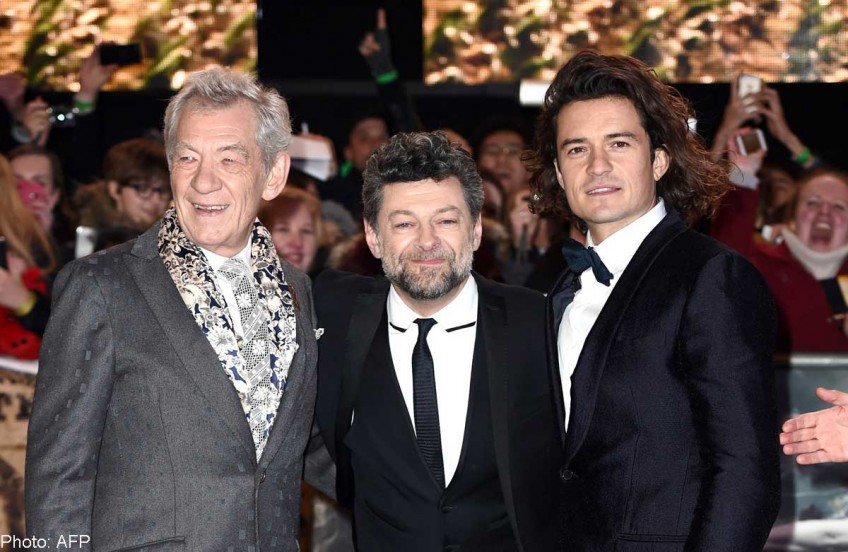It's the beginning of the end for The Hobbit

RICH with special effects, the final instalment of director Peter Jackson's The Hobbit trilogy debuted in a much-anticipated premiere in London on Monday.
The Hobbit: The Battle Of The Five Armies was filmed in 3D in a vivid 48 frames per second. The trilogy is reported to be the most expensive three-part series made.
The premiere was also lavish, with the landmark Leicester Square cinema designed to look like ruins for the night and filled with giant screens showing excerpts from the film.
Hundreds of fans gathered, many dressed as wizards and warriors, to ask for autographs and take photos with a star-studded cast that includes Orlando Bloom and Ian McKellen.
"Excited, very excited to share it with fans, it's a very good end to the story, I saw it last night and I'm very pleased with it," said Martin Freeman, who stars as hobbit Bilbo Baggins.
Based on J. R. R. Tolkien's 1937 book, The Hobbit, the trilogy tells the story of Baggins' journey with a group of dwarves, helped by the wizard Gandalf, to reclaim their Lonely Mountain homeland from Smaug the dragon.
Director Jackson had originally planned to interpret the book as a two-part film, but changed his mind to make a trilogy like the hugely successful Lord Of The Rings series, released between 2001 and 2003.
In the films, Jackson replaces the original light and humorous tone with a darker feel and sense of danger.
Working with Tolkien's notes for inspiration, the film series also adds in storylines and characters such as the woodland elf Tauriel, played by Lost star Evangeline Lilly, who did not appear in the original book.
"For Tolkien himself, the novel as published did not tell the whole story," said the production notes for the film, referring to the extensive world of Middle-earth created by Tolkien, complete with its own languages, peoples and history.
The film offers just under 21/2 hours of non-stop action, starting with the aerial bombardment of a village by Smaug.
The dragon is portrayed by British actor Benedict Cumberbatch, who lent his voice to the character as well as his movements and facial expressions, recorded through sensors.
The film is expected to take in a similarly large haul as its predecessors, The Hobbit: An Unexpected Journey (2012) and The Hobbit: The Desolation Of Smaug (2013), thought to have made almost US$2 billion (S$2.6 billion) between them.
Jackson, who has spent 16 years making six films based on the works of Tolkien, indicated that he is ready for something new.
"The idea of doing a little drama with people in a house seems very attractive right now," the director said recently, describing his effort as an "endurance test".
The final instalment will appear in cinemas around the world from next Wednesday.